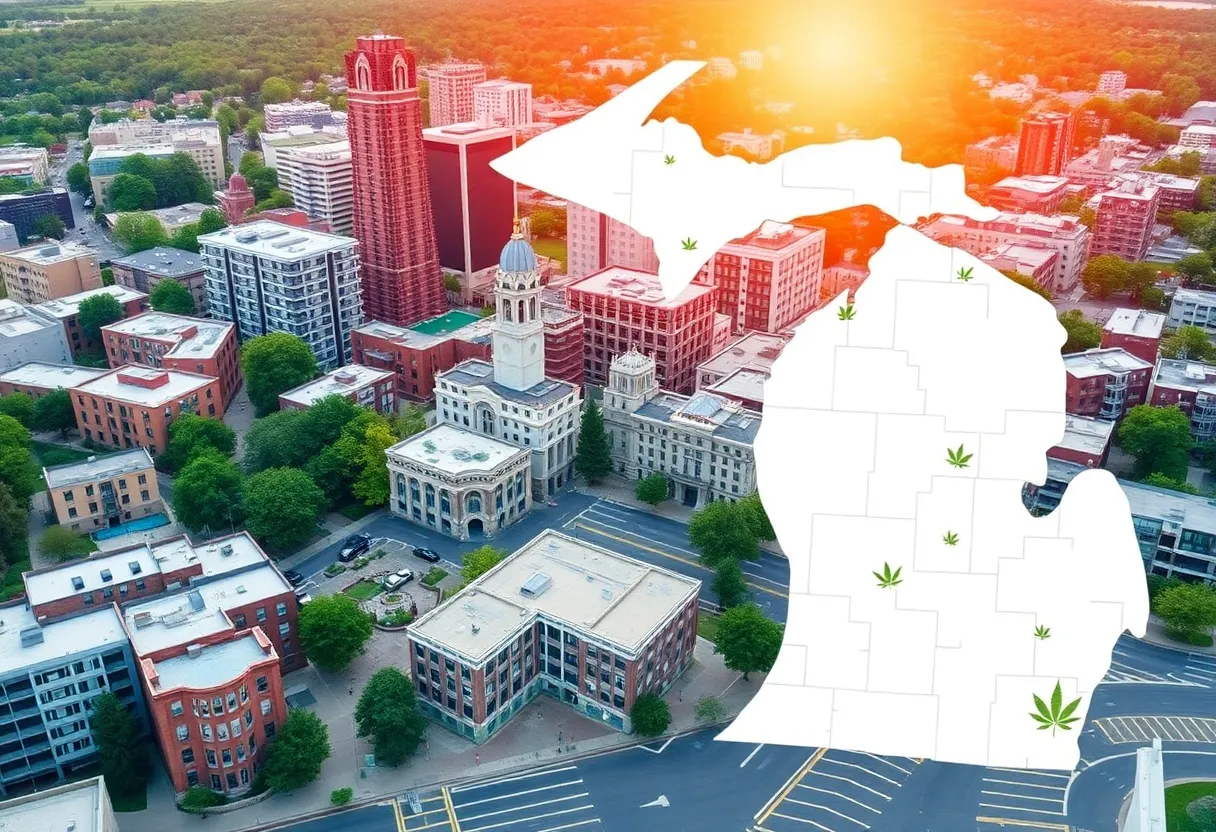

Michigan communities experiencing growth and improved funding due to marijuana tax revenues.
Want to target the right audience? Sponsor our site and choose your specific industry to connect with a relevant audience.
Prominent brand mentions across targeted, industry-focused articles
High-visibility placements that speak directly to an engaged local audience
Guaranteed coverage that maximizes exposure and reinforces your brand presence
Interested in seeing what sponsored content looks like on our platform?
May’s Roofing & Contracting
Forwal Construction
NSC Clips
Real Internet Sales
Suited
Florida4Golf
Click the button below to sponsor our articles:
Sponsor Our ArticlesMichigan is set to distribute nearly $100 million in marijuana tax revenue to local governments and schools, following the state’s marijuana legalization. A total of 302 entities will share this fund, with significant amounts going to education and transportation. The new revenue not only aids local governance but also marks a pivotal moment for tribes receiving funds for the first time. As discussions about future funding plans continue, there are concerns about potential black market influences due to increased taxes.
In a delightful turn of events for communities across Michigan, nearly $100 million is on its way to local governments and schools, all thanks to the state’s marijuana tax revenue. This distribution is part of the Michigan Regulation and Taxation of Marijuana Act, which has not only paved the way for recreational marijuana use but also brought in substantial funds for the state.
A total of 302 entities and tribes will receive these funds, spreading the wealth across the state. This includes payments to 108 cities, 36 villages, 80 townships, and 74 counties, along with four federally recognized tribes. Each eligible community can expect to receive an average of over $58,200 for every licensed retail store and microbusiness located in their jurisdiction.
The money is sourced from the Marihuana Regulation Fund, which comprises revenue from a 10% adult-use marihuana excise tax and various fees. In fact, more than $331 million was available in this fund for the 2024 fiscal year – a substantial sum that showcases the growing impact of the legal cannabis industry in Michigan.
But wait, there’s more! In addition to the funds allocated for local governments, over $116 million has been designated for the School Aid Fund, directly benefiting K-12 education. Plus, another $116 million has been funneled into the Michigan Transportation Fund, helping address ongoing infrastructure needs across the state. Given the challenges with road conditions, this additional funding could not come at a better time.
The Cannabis Regulatory Agency (CRA) has pointed out that cannabis businesses are more than just a lucrative source of tax revenue. They also serve as a major cornerstone in job creation, promoting community engagement, and bolstering local economies. This is a win-win situation that supports both local initiatives and business growth.
However, as the state celebrates the windfall from marijuana taxes, discussions are heating up regarding proposals for an additional long-term funding plan aimed at repairing Michigan’s roads, estimated to cost around $3 billion. Governor Gretchen Whitmer has presented a new tax strategy concerning the marijuana industry that could generate an extra $470 million each year.
Still, not everyone is on board with increased marijuana taxes; there is a concern that higher taxes may drive customers back to the black market, which could undermine small cannabis businesses. The Michigan Transportation and Infrastructure Association has highlighted the pressing need for new funding, estimating that the state needs about $4 billion annually for road repairs.
Whitmer’s plan also suggests redirecting revenues from the state’s 6% sales tax on motor fuel to repair Michigan’s roads, aiming for a target of $1 billion annually. However, some lawmakers argue that sufficient funds are already available for road repair without needing to impose new taxes.
As lawmakers gear up to finalize the budget by July 1, 2025, they face a challenging path ahead, full of discussions and disagreements about how to move forward. Among these proposals, a potential increase in the corporate income tax has emerged as yet another option to fund these essential repairs. The future looks lively in Michigan, as the state finds itself at a crossroads of opportunity, funding, and responsibility.
News Summary Shanna Gardner and Mario Fernandez are facing first-degree murder charges in the tragic…
News Summary Royal Philips has expanded its partnership with Ibex Medical Analytics to improve AI-enabled…
News Summary In 2024, the intersection of AI and social media marketing is revolutionizing the…
News Summary H&M is set to revolutionize the fashion industry by creating digital twins of…
News Summary Twix has introduced a new global campaign titled "Two is More Than One,"…
News Summary Willis has launched AdWrap, a master-controlled insurance program designed to simplify the production…